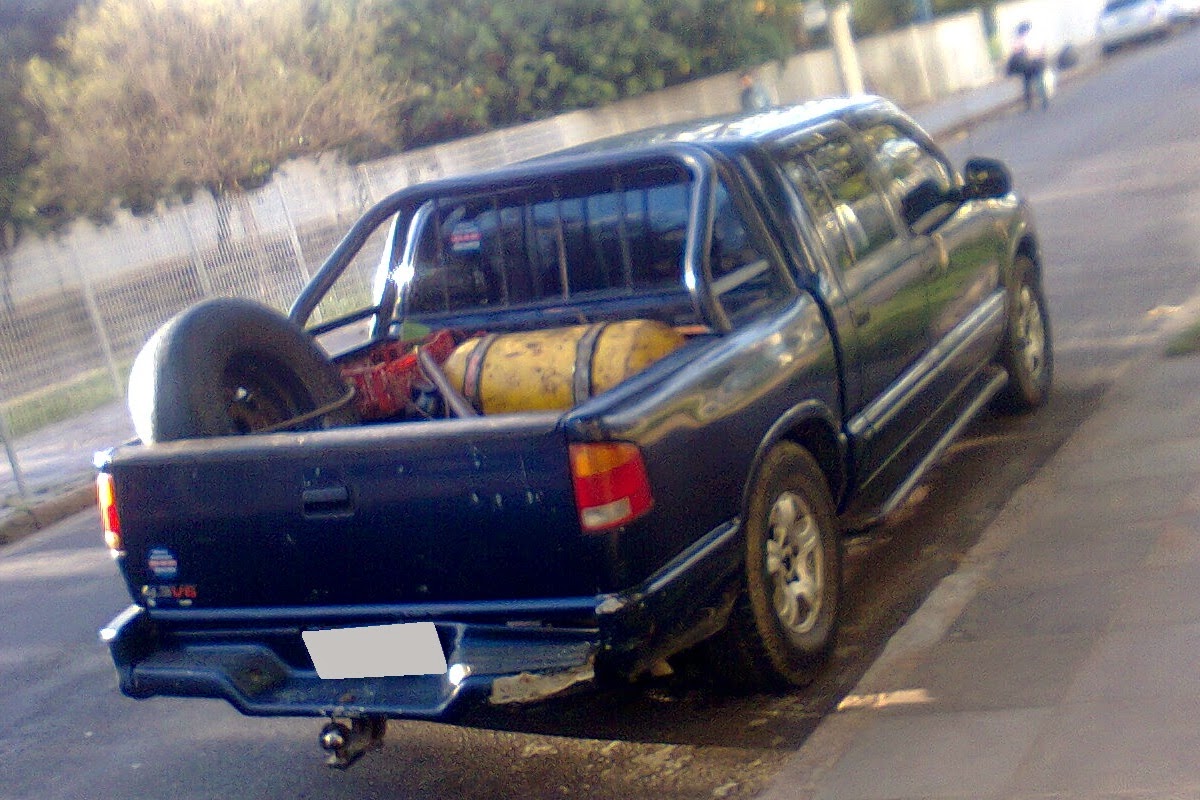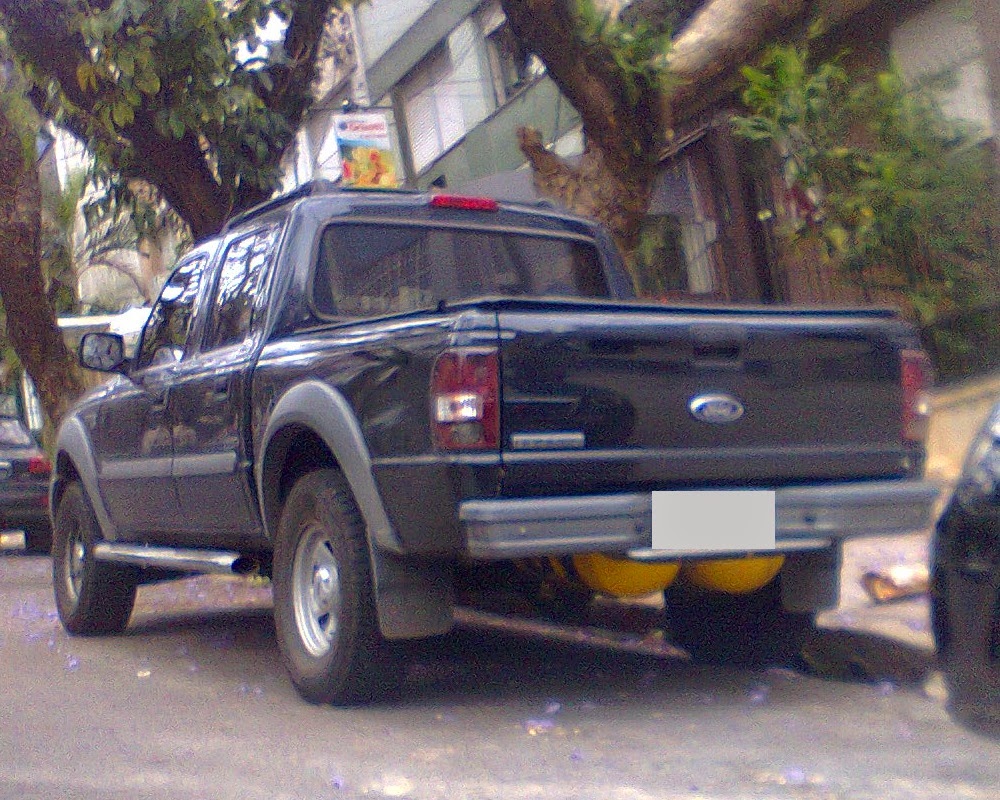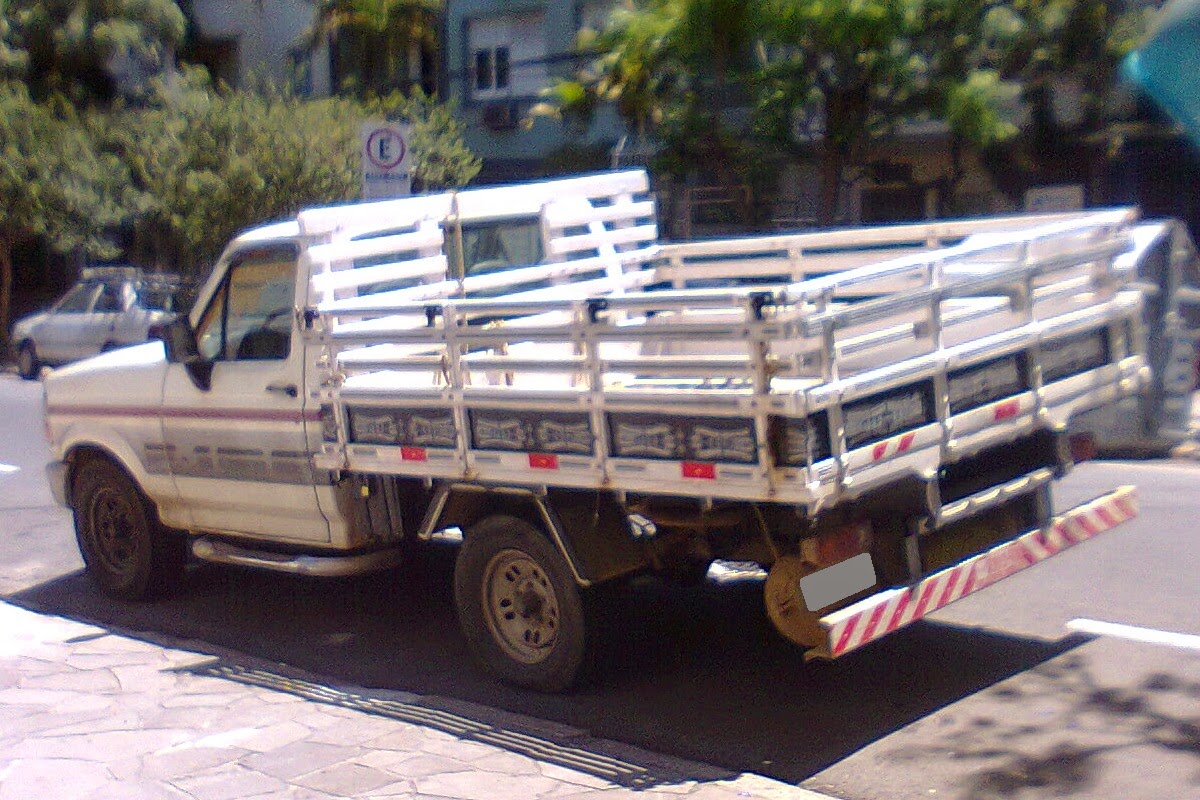 09-25-2017, 12:08 PM
09-25-2017, 12:08 PM
|
#1 (permalink)
|
|
It's all about Diesel
Join Date: Oct 2012
Location: Porto Alegre, Rio Grande do Sul, Brazil
Posts: 12,562
Thanks: 0
Thanked 1,625 Times in 1,450 Posts
|
Import of Diesel vehicles up to 4000cc forbidden in Bolivia
Even though a Diesel engine above 4000cc could get the very same or occasionally some better mileage than a smaller one due to the differences in RPM bands and low-end torque, such a restriction based exclusively on the displacement is likely to become detrimental to the fuel-efficiency and eventually the performance in rougher terrain.
Let's consider, for example, a Toyota Hilux. Even if it would be possible to shoehorn a 4.1L 15B engine into it instead of the 3.0L 5L-E, the 2.5L 2KD-FTV, the 2.8L 1GD-FTV or the 2.4L 2GD-FTV available in different markets around the world, a heavier engine is likely to increase the tendency for the vehicle to have its front-end "sinking" in soft, unstable terrain. The dead weight inherent to a heavier engine may also reflect in a decrease of the payload, thus decreasing even further the efficiency of the vehicle considering the specific fuel-consumption for the payload.

|
|
|

|
 Today Today
|
|
|
|
 Other popular topics in this forum...
Other popular topics in this forum...
|
|
|
|
 09-25-2017, 02:26 PM
09-25-2017, 02:26 PM
|
#2 (permalink)
|
|
Master EcoModder
Join Date: Jun 2017
Location: Scotland
Posts: 654
Thanks: 36
Thanked 137 Times in 101 Posts
|
They also prohibit the import of vehicles fuelled by LPG.
|
|
|

|
 09-25-2017, 02:41 PM
09-25-2017, 02:41 PM
|
#3 (permalink)
|
|
It's all about Diesel
Join Date: Oct 2012
Location: Porto Alegre, Rio Grande do Sul, Brazil
Posts: 12,562
Thanks: 0
Thanked 1,625 Times in 1,450 Posts
|
Quote:
Originally Posted by JockoT

They also prohibit the import of vehicles fuelled by LPG.
|
Due to the large natural gas reserves in Bolivia, it wouldn't make any sense at all to use LPG instead of CNG. OTOH in Brazil LPG is not road-legal, since it used to be subsidized for use as a home fuel for cooking and heating.
But anyway, either LPG or CNG take up some space and also decrease the payload to a point that may render them less suitable for certain jobs.




Sometimes the CNG cylinders can be mounted below the tray, but it still has some side-effect to the payload...


|
|
|

|
 09-25-2017, 04:02 PM
09-25-2017, 04:02 PM
|
#4 (permalink)
|
|
EcoModding Apprentice
Join Date: Aug 2012
Location: Utah
Posts: 118
Thanks: 1
Thanked 33 Times in 24 Posts
|
Who are they protecting? Do they have an "indigenous" small diesel? Is diesel subsidized for a certain sector, like buses and agriculture?
Use of subsidized lpg in vehicles is a big problem in Ecuador. That subsidy is ending, as they attempt to transition to subsidized hydroelectric (made by China) powered induction coil stoves (Made in China). A horrible idea horribly executed. Hurrah for socialism!
|
|
|

|
 09-25-2017, 09:46 PM
09-25-2017, 09:46 PM
|
#5 (permalink)
|
|
It's all about Diesel
Join Date: Oct 2012
Location: Porto Alegre, Rio Grande do Sul, Brazil
Posts: 12,562
Thanks: 0
Thanked 1,625 Times in 1,450 Posts
|
Quote:
Originally Posted by acparker

Who are they protecting?
|
Not really protecting anybody, it's an attempt to replace Venezuelan-sourced Diesel fuel for natural gas drilled in Bolivia.
Quote:
|
Do they have an "indigenous" small diesel?
|
IIRC there's not even local assembly of cars in Bolivia, let alone engine manufacturing. Nowadays most of the vehicles sold there are either Japanese (eventually made in Thailand or Indonesia by local branches of Japanese companies) or Chinese.
Quote:
|
Is diesel subsidized for a certain sector, like buses and agriculture?
|
Yes, it is heavily subsidized, mostly due to its usage on public transport but not specific to any certain sector.
Quote:
|
Use of subsidized lpg in vehicles is a big problem in Ecuador.
|
I'm not aware of the situation of LPG-powered vehicles in Ecuador, but anyway, Ecuador is probably the country with the slowest growth in the market for CNG as an automotive fuel in the region (excluding the Guyanas for which I have no clue about the availability of gaseous fuels).
Quote:
|
That subsidy is ending, as they attempt to transition to subsidized hydroelectric (made by China) powered induction coil stoves (Made in China). A horrible idea horribly executed. Hurrah for socialism!
|
Induction coil stoves don't seem so bad at all, they're even supposed to decrease the risk of fire in the household or carbon monoxide poisoning in poorly-ventilated spaces. But anyway, socialism is destroying South America. I just hope Brazilian Army will uphold to a recent statement of general Antônio Hamilton Martins Mourão who said the Army will eventually have to impose the order in case the Justice doesn't dump the corrupts out of the political life of the country. |
|
|

|
 09-26-2017, 01:52 AM
09-26-2017, 01:52 AM
|
#6 (permalink)
|
|
EcoModding Apprentice
Join Date: Aug 2012
Location: Utah
Posts: 118
Thanks: 1
Thanked 33 Times in 24 Posts
|
Ahh, so ALBA isn't working out so well.
Ecuador is developing its natural gas reserves, but they have no plans to distribute it for popular use. It is targeted for (limited) heavy industry and export.
The subsidy for lpg was begun back in the '70's. It was a major factor in preserving forests and keeping urban air clean, along with buying votes, its principal purpose. It became unsustainable after the refineries were nationalized and production plummeted. They were purchasing lpg on the spot market to meet demand. Very pricey.
The induction coil stoves are very efficient, if your power grid is stable. The plan was implemented without regard to its impact on the grid. It has become a money pit. Correa also banned the sale of gas stoves. Ecuador was a major producer of gas appliances in the region. That production was shut down. It was to have been replaced with domestically produced induction stoves, but that never materialized. The stoves were sourced directly from China, and they don't work reliably.
The problem for the people is that in order to get the subsidized induction stoves, you had to hand in your gas stoves, which were crushed (or sold on the black market in Peru or Colombia). A housewife is faced with preparing daily meals without any backup to an unreliable power grid (except purchasing charcoal or firewood, back to the future).
Returning to the original subject, wouldn't synthetic diesel be less of a burden on the economy?
|
|
|

|
 09-26-2017, 04:05 PM
09-26-2017, 04:05 PM
|
#7 (permalink)
|
|
It's all about Diesel
Join Date: Oct 2012
Location: Porto Alegre, Rio Grande do Sul, Brazil
Posts: 12,562
Thanks: 0
Thanked 1,625 Times in 1,450 Posts
|
Quote:
Originally Posted by acparker

Ecuador is developing its natural gas reserves, but they have no plans to distribute it for popular use. It is targeted for (limited) heavy industry and export.
|
IIRC it was mostly used for power generation, and some limited availability through pipelines in some southern coastal cities close to the gas fields.
Quote:
|
The subsidy for lpg was begun back in the '70's. It was a major factor in preserving forests and keeping urban air clean, along with buying votes, its principal purpose. It became unsustainable after the refineries were nationalized and production plummeted. They were purchasing lpg on the spot market to meet demand. Very pricey.
|
Eventually, it would make more sense to develop some sustainable forest handling and restocking strategies, aiming to use the wood either directly as a fuel or resorting to wood gas generators.
Quote:
|
The induction coil stoves are very efficient, if your power grid is stable. The plan was implemented without regard to its impact on the grid.
|
Poor planning is unfortunately too widespread in the region.
Quote:
|
Returning to the original subject, wouldn't synthetic diesel be less of a burden on the economy?
|
Synthetic Diesel made out of natural gas (or other feedstocks, including wood chips) could be better, even though the lower energy requirements to provide the natural gas might have sounded more attractive for city customers who have a rather easier access to pipelines and refuelling stations, while people from rural areas would benefit more from synthetic Diesel due to its easier handling. Well, we can guess it won't be so easy to attempt to transfer fuel between CNG tanks like it is for handling Diesel fuel from a Jerry can or between the tank of a tractor and a truck  |
|
|

|
 09-27-2017, 02:47 AM
09-27-2017, 02:47 AM
|
#8 (permalink)
|
|
EcoModding Apprentice
Join Date: Aug 2012
Location: Utah
Posts: 118
Thanks: 1
Thanked 33 Times in 24 Posts
|
You are quite correct about the proposed use of Ecuador's natural gas. It has been some time since I looked into it and the rhetoric had changed. A quick review of their natural gas efforts would be comical if so much money had not been wasted on it. It seems the Correa regime couldn't get anything right, except fill their offshore accounts.
I am not a big fan of biomass as fuel at the industrial scale. The popular view is that biomass will come from existing tree farms, but the reality is that it is far cheaper to cut natural stands first, especially in the Third World.
|
|
|

|
 09-27-2017, 04:21 PM
09-27-2017, 04:21 PM
|
#9 (permalink)
|
|
It's all about Diesel
Join Date: Oct 2012
Location: Porto Alegre, Rio Grande do Sul, Brazil
Posts: 12,562
Thanks: 0
Thanked 1,625 Times in 1,450 Posts
|
Quote:
Originally Posted by acparker

I am not a big fan of biomass as fuel at the industrial scale. The popular view is that biomass will come from existing tree farms, but the reality is that it is far cheaper to cut natural stands first, especially in the Third World.
|
Illegally-cut native timber back here is more often used for furniture/cabinetry and other sorts of woodcraft due to their perceived commercial value. Anyway, other residues with a lower commercial value can be used as fuel instead of wood, such as straw, corn cobs, nut shells, among others. The rigid shell that surround Brazilnuts (known locally as "ouriço" - hedgehog) is often used as a replacement for fire wood in riverside villages in Pará and Amazonas, for example.

|
|
|

|
 09-27-2017, 05:14 PM
09-27-2017, 05:14 PM
|
#10 (permalink)
|
|
EcoModding Apprentice
Join Date: Aug 2012
Location: Utah
Posts: 118
Thanks: 1
Thanked 33 Times in 24 Posts
|
Harvesting selectively for timber is damaging, harvesting for biomass is catastrophic.
I spent some time, many years ago, in the area of the Ouachita mountains of Oklahoma and Arkansas. It was Weyerhaeuser country. They held a 99 year lease on all the woodlands of the area. For the first few decades, they selectively harvested for furniture and construction grade lumber. Sometime in the '60's or '70's, the corporate focus shifted to pulpwood. They clearcut hundreds of thousands of acres of centuries-old virgin hardwood forest and sent it all to the pulp mills. They then replanted with fast-growing softwoods. Locals were enraged at the loss of quality hardwoods that had been feeding a thriving furniture manufacturing industry, and could have continued to do so for generations.
Biomass is a good idea, generally, but when you lose perspective in pursuit of short-term gain there are unfortunate consequences.
Agriculture and forestry waste is a byproduct that is often overlooked. A lot can be done at the local level to utilize those resources. Here is an interesting website that details some options for utilizing agricultural waste-streams: EPWT
|
|
|

|
|
The Following 2 Users Say Thank You to acparker For This Useful Post:
|
|
|